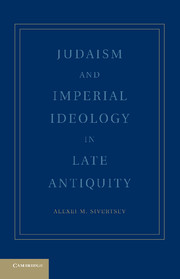1 - Esau, Jacob's Brother
Published online by Cambridge University Press: 01 June 2011
Summary
In his homily commemorating the defense of constantinople against the Avars and the Persians in 626, Theodore Syncellus hails the sacred and eternal nature of the Byzantine Empire and its capital city by portraying them as the true Israel and New Jerusalem, respectively. Theodore presents an elaborate exegesis of prophetic and historical books of the Old Testament arguing that they should be read as references to the events of 626. Among other things, according to Theodore, the sack of the Old Jerusalem and the salvation of the new one took place on the same date. This providential coincidence marked the special destiny of the New Jerusalem, Constantinople, to be the religious center of the true Israel as well as the geographic center of the inhabited world, “the navel of the world,” binding the world together in religious and imperial unity. Theodore Syncellus stands in a long line of Byzantine authors who used the theme of succession from Israel to Byzantium as a way to buttress the triumphant universalism of the empire. The supersessionist narrative that portrayed Israel as a typological precursor of Christian Byzantium became a ubiquitous feature of Byzantine religio-political discourse and court ritual.
Christianity did not invent Roman universalism. The ideology of Rome's eternal rule had a long and deeply rooted pre-Christian history, going all the way back to the Golden Age of Augustus and past him to the republican period. Yet the Christian Roman Empire and its ideologists proved to be worthy recipients of this age-old doctrine.
- Type
- Chapter
- Information
- Judaism and Imperial Ideology in Late Antiquity , pp. 9 - 44Publisher: Cambridge University PressPrint publication year: 2011



